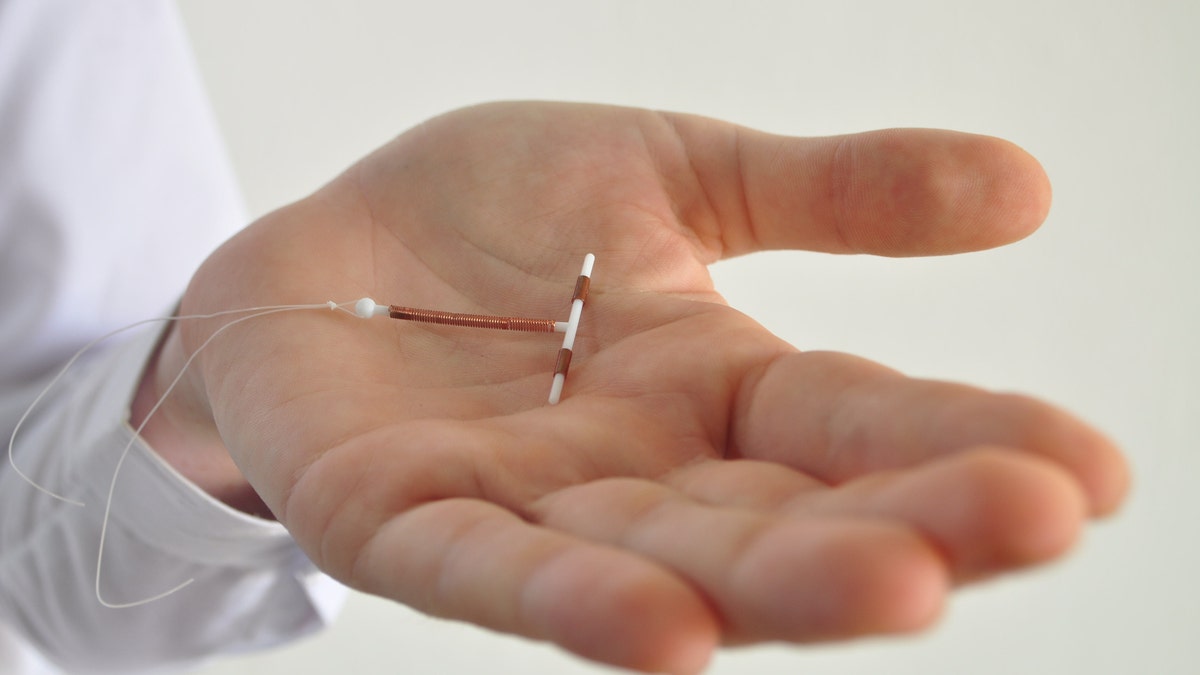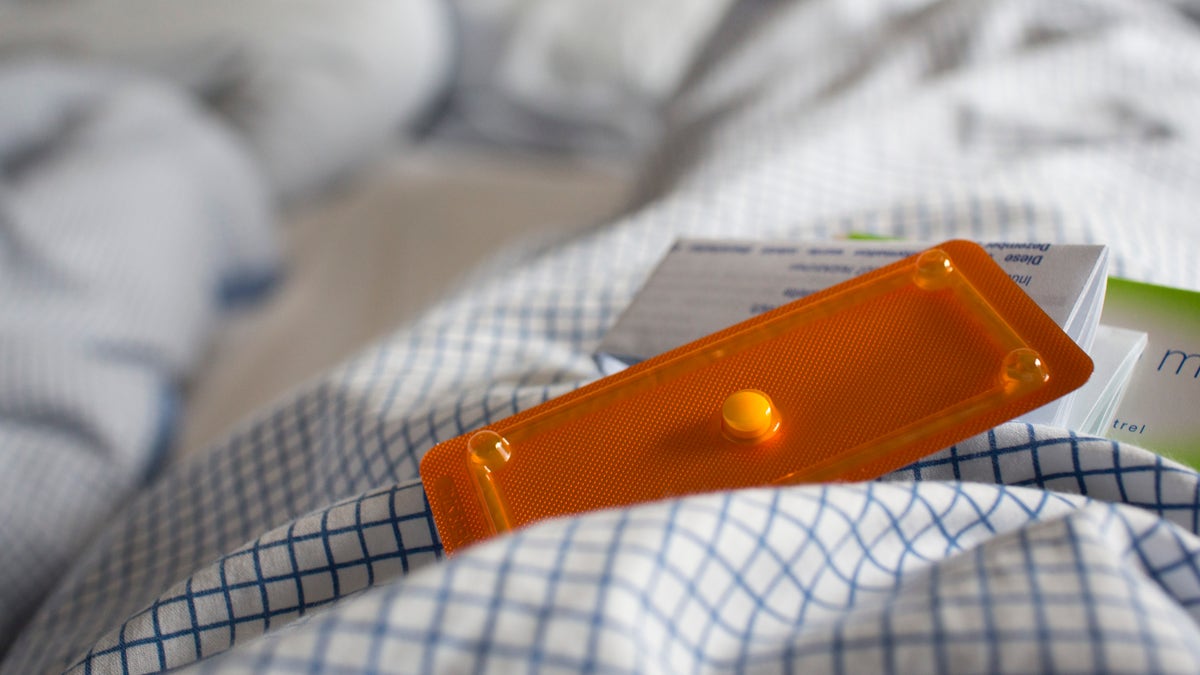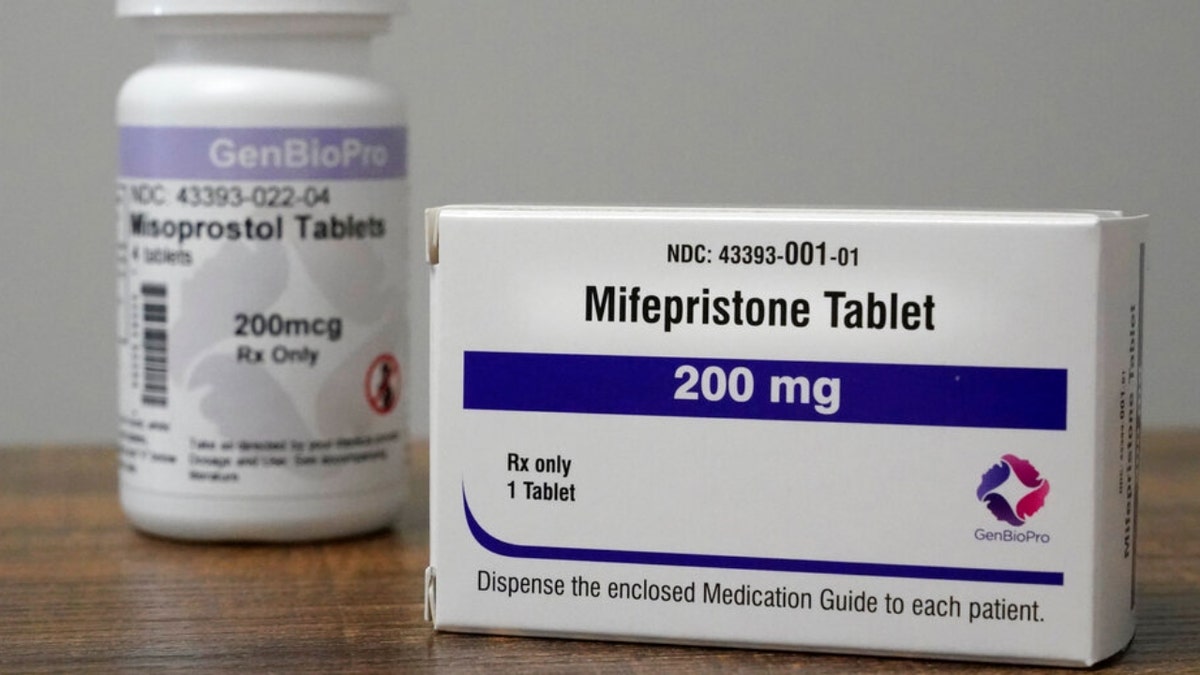Jonathan Morris on Supreme Court overturning Roe v Wade: Those who prayed 'persevered'
Fox News contributor and theologian Jonathan Morris joined 'Fox & Friends Weekend' with insight.
In the aftermath of the divisive Supreme Court decision that ended the constitutional right to abortion in the United States, people across the country still have access to emergency contraception such as Plan B, according to reports.
People across the U.S. can still buy and access contraception, USA Today reported. In his concurring opinion in Dobbs v. Jackson Women's Health Organization, Supreme Court Justice Brett Kavanaugh wrote, "Overruling Roe does not mean the overruling of" precedents involving the right to contraception, though Democratic-nominated justices and legal analysts disagree.
Deciding the best option for emergency contraception depends on several factors: 1) time lapsed after unprotected sex, 2) a woman’s weight, 3) if a woman is breastfeeding, 4) cost and 5) which type is most easily accessible, according to Planned Parenthood.
Emergency contraception is a safe and effective way to prevent pregnancy within 5 days after unprotected sex that works by preventing sperm from meeting an egg, according to the non-profit’s website.
The two ways to prevent pregnancy after unprotected sex are via an intrauterine device (IUD), which is typically a small T-shaped device inserted into the uterus, or an emergency contraception pill, also referred to as the "morning-after pill."

Holding an IUD birth control copper coil device in hand, used for contraception - side view. (iStock)
WHY THE SUPREME COURT ABORTION DECISION EMPOWERS WOMEN
IUDs, which can be placed within 5 days of unprotected sex, are the most effective type of emergency contraception, but it may not be possible to get an appointment in time for a health care professional to place one.
The IUDs, under such brand names as Paragard, Mirena and Liletta, work as well on the first day as on the fifth day after unprotected sex.
"The Paragard IUD doesn’t have hormones. It’s wrapped in a tiny bit of copper, and it protects you from pregnancy for up to 12 years," per Planned Parenthood’s website.
"The Mirena, Kyleena, Liletta, and Skyla IUDs use the hormone progestin to prevent pregnancy. Progestin is very similar to the hormone progesterone that our bodies make naturally. Mirena works for up to 7 years. Kyleena works for up to 5 years. Liletta works for up to 7 years. Skyla works for up to 3 years."
There are two types of emergency contraception oral pills: a pill with ulipristal acetate that only has one brand called Ella, and a pill with levonorgestrel under several brand names including: Plan B One Step (which is what many refer to as "Plan B"), Take Action, My Way, Option 2, Preventeza, AfterPill, My Choice, Aftera, and EContra, according to the Planned Parenthood website.
Levonorgestrel is a similar type of progestin like in birth control pills, whereas Ella is a progestin blocker, according to USA Today.
Even though it is often referred to as the "morning-after pill," emergency contraception pills can be taken up to 5 days after unprotected sex, but they are most effective when taken as soon as possible, ideally within 3 days.

An abortion pill 'PiDaNa from HRA Pharma' in a rumpled bed. (Ute Grabowsky/Photothek via Getty Images)
Levonorgestrel pills reduce pregnancy risk by 75-89% if taken within 3 days, but the generic and brand names are equally effective regardless of cost, according to Planned Parenthood.
Levonorgestrel pills that can be purchased without a prescription at the local drugstore, pharmacy or online, but if a woman weighs more than 165 pounds, it may not work as well.
"It doesn’t matter how old you are and it doesn’t matter what your gender is. Sometimes the morning-after pill is locked up or kept behind the counter, so you may have to ask the pharmacist or store clerk for help getting it — but you don’t have to have a prescription or show your ID," per Planned Parenthood’s website.
Side effects are not common, but sometimes a woman may get an upset stomach, experience dizziness, complain of tender breasts for a "short while" after taking the pill, or experience a different menstrual cycle for their next period, per Planned Parenthood.
Ella, the oral pill that contains ulipristal acetate, is the most effective emergency contraceptive pill, but it requires a prescription and may not be effective for women who weigh more than 195 pounds.
Ella can reduce the risk of pregnancy by 85% if taken within 5 days, per Planned Parenthood.
And if a woman is breastfeeding, Plan B and IUDs won’t affect the breast milk, but a breastfeeding mother will need to "pump and dump" breast milk for 36 hours after taking Ella.
Plan B’s typical cost is $40 to $50, but in some states patients can often get morning-after pills for free with many insurance plans, including Medicaid, according to USA Today. Going through health insurance usually requires a prescription, however.

Containers of the medication used to end an early pregnancy sit on a table inside a Planned Parenthood clinic, Oct. 29, 2021, in Fairview Heights, Ill. (AP Photo/Jeff Roberson)
WHAT IS MIFEPRISTONE? ABORTION MEDICATION IN FOCUS AFTER SUPREME COURT ROE V. WADE DECISION
Dr. Meera Shah, chief medical officer of Planned Parenthood Hudson Peconic in New York, recommends buying one or more morning-after pills beforehand in case of an emergency.
Some states, however, have "conscience clauses" that allow pharmacists to refuse to fill contraception prescriptions if doing so violates their religious or personal beliefs, per the news outlet.
Emergency contraceptives, like the IUD and the oral pills, "won't have an impact on an existing pregnancy, they prevent a pregnancy from occurring," Shah told USA Today.
Some experts, however, worry if the reversal of Roe v. Wade could eventually lead to restrictions beyond abortion rights.
CLICK HERE TO GET THE FOX NEWS APP
Americans’ right to privacy comes from several parts of the Constitution, "but it evolved out of a right to contraception access. And from that we got a whole slew of sexual privacy rights," Anthony Michael Kreis, a law professor at Georgia State University College of Law, told USA Today in May.
"So, if you unravel one string in that fabric of doctrine, it could potentially unravel the other rights or at least open them up to greater attack."









































